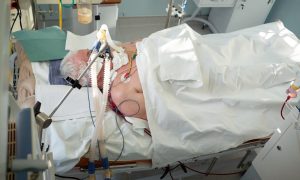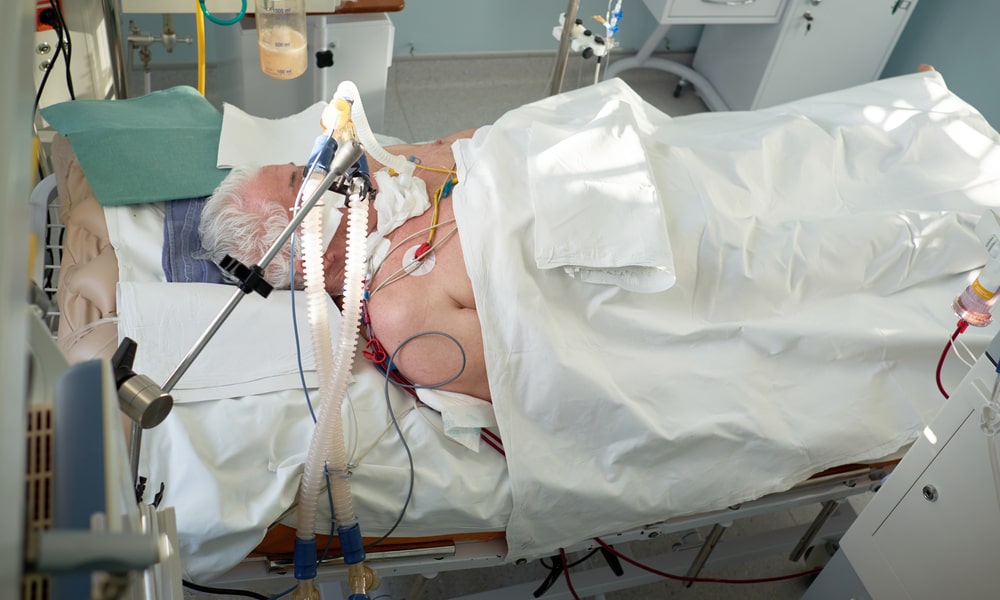The scope of the problem
SARS-CoV, H1N1, MERS-CoV, and now SARS-CoV2 (aka COVID-19) – coronaviruses have certainly emerged as one of the major pathogens to cause disease outbreaks in the past 20 years. They are particularly dangerous because coronaviruses can jump between species or cross the species barrier, from animal to animal or from animals to humans.
Four of the seven known coronaviruses known to infect humans cause symptoms that are similar to a common cold. However, three of them (SARS-CoV, MERS-CoV, and COVID-19) can lead to severe respiratory infections, which can be fatal to those with compromised immune systems.
COVID19 pathogenesis
Pathogenesis describes the mechanism by which a pathogen causes a disease. The first stage of viral pathogenesis involves recognizing a specific protein on the surface of cells. COVID-19 appears to use a surface protein (ACE2 receptor) that is very common in different cell types in the respiratory system.
Another key pathogenic feature that sets COVID-19 apart is the fact that it induces what scientists call a ‘cytokine-storm.’ Cytokines are signaling molecules released by specific types of immune cells that play a role in fighting off infections.
But during a cytokine-storm extra cytokines are released, so much so that the body starts to attack its cells. Cytokines are also responsible for the respiratory symptoms associated with COVID-19, such as inflamed airways and fluid in the lungs (pulmonary edema).
These are the reasons why researchers believe that getting control of the cytokine release may be one way of tackling COVID-19.
Why stem cell therapy?
Just a month ago, the FDA approved several treatment options for COVID-19, including the use of mesenchymal stem cell therapy. Mesenchymal stem cells (found in cord tissue, bone marrow, and other tissue) are early-stage cells that can regenerate a number of different cell types in the body, including cartilage, bone, and fat cells.
Stem cell therapy involves introducing stem cells into the body of a patient to treat or prevent a disease. Many clinical trials have already shown that mesenchymal stem cells are safe and sometimes effective as a treatment option.
What’s more, studies show that these stem cells have immunomodulatory effects, meaning that they can modify or regulate the immune system. The idea is that mesenchymal stem cell therapy may stop the cytokine storm, thereby help promote repair and healing.
What the data tells us so far
Finding from a small clinical trial conducted in China using mesenchymal stem cells were likely behind the FDA’s decision to approve stem cell therapy for COVID-19. Data from this study showed that mesenchymal stem cell infusion is a safe and effective way to treat patients with COVID-19 pneumonia. Several case studies also report similar improvements.
As a result, some clinical trials are now exploring the option of using mesenchymal stem cells to treat COVID-19 effectively. At least three trials are looking specifically at umbilical cord-derived mesenchymal stem cells, including a trial in the US at the University of Miami.
Returning to normality
COVID19 has claimed the life of more than 250, 000 people worldwide so far. We sincerely hope the effort many scientists are putting into effectively treating and managing COVID-19 will help us return to “normality” not too far off in the future.
References:
Transplantation of ACE2- Mesenchymal Stem Cells Improves the Outcome of Patients with COVID-19 Pneumonia
Mesenchymal Stem Cell Therapy for COVID-19: Present or Future











